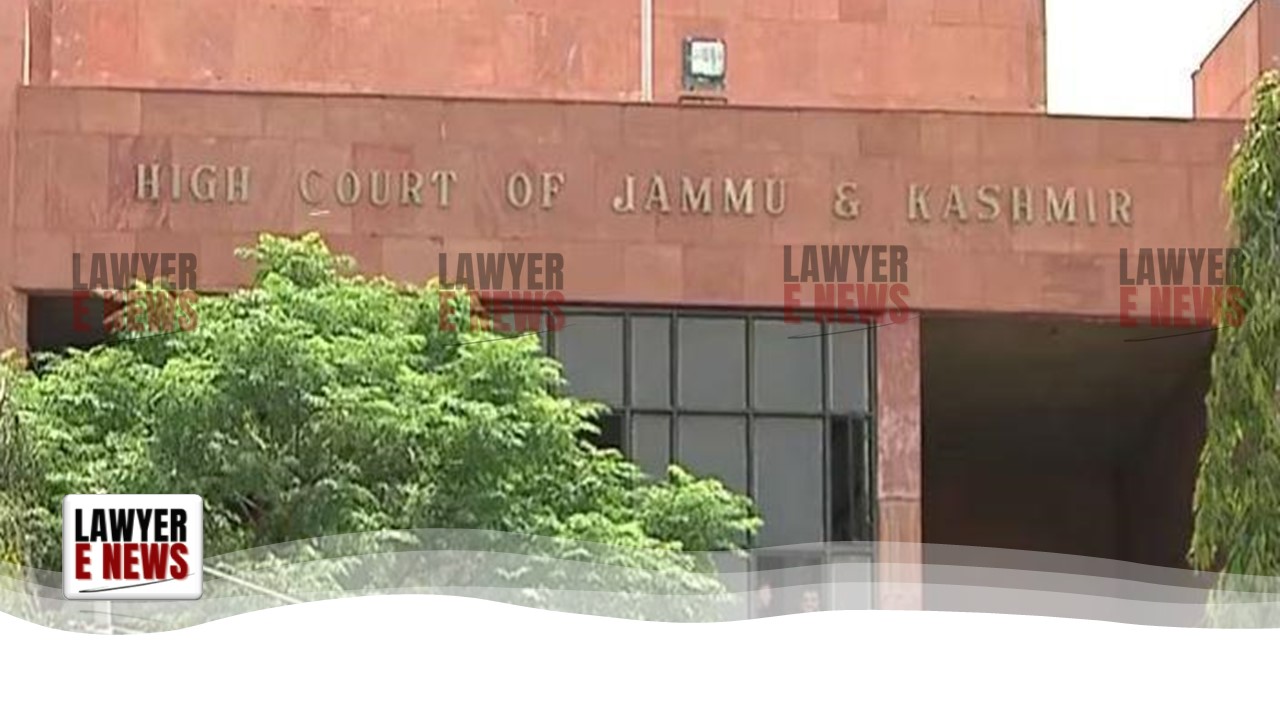-
by sayum
14 February 2026 2:22 PM



Petition challenging exclusion of ex-servicemen from reservation benefits dismissed; court urges bank to consider future policy changes.
The High Court of Jammu & Kashmir and Ladakh has dismissed a series of writ petitions challenging the exclusion of ex-servicemen from reservation benefits in the recruitment process for Banking Associates by the Jammu & Kashmir Bank. The judgment, delivered by Hon’ble Mr. Justice Sanjeev Kumar, reaffirms the bank’s autonomy in recruitment policies while suggesting a review for future inclusivity of ex-servicemen.
The petitions were filed by groups of ex-servicemen aggrieved by Advertisement Notification No. JKB/HRD/Rectt/2020-73 dated July 2, 2020, issued by Jammu & Kashmir Bank for the recruitment of Banking Associates. The petitioners claimed that, as per the Jammu & Kashmir Reservation Act, 2004 and the Reservation Rules, 2005, they were entitled to a 6% horizontal reservation. They argued that the bank’s exclusion of ex-servicemen from these benefits was unlawful. The bank, however, maintained that its recruitment rules did not provide for such reservations, prompting the legal challenge.
Bank’s Autonomy in Recruitment Policies: The court upheld Jammu & Kashmir Bank’s stance that it, being an autonomous institution, is not bound by the reservation policies of the Government of Jammu & Kashmir. Justice Sanjeev Kumar emphasized, “The J&K Bank, governed by its own Articles of Association and Service Rules, is not obliged to follow government reservation policies unless explicitly incorporated in its rules.”
Horizontal Reservation for Ex-Servicemen: The petitioners contended that, as per the Jammu & Kashmir Reservation Act, 2004, and the Rules framed thereunder, they were entitled to a 6% horizontal reservation. However, the court found that the bank’s recruitment rules, specifically the amendments made on June 1, 2020, did not include ex-servicemen in the reserved categories.
Evaluation of Advertisement Notification: The court examined the advertisement notification dated July 2, 2020, and noted that while it referenced the application of reservation rules of the J&K UT, it clearly listed the categories for which reservations were provided. Ex-servicemen were not included in this list. Justice Kumar remarked, “Clause 8 of the advertisement notification must be read harmoniously with the given breakup of reserved categories, which does not include ex-servicemen.”
The court’s legal reasoning highlighted the bank’s discretion to frame its own reservation policies. The judgment clarified that the bank, despite being a public body, is not mandated to follow the reservation policy of the Union Territory of Jammu & Kashmir unless it chooses to incorporate such policies into its own rules. “The petitioners have no vested right either under the Constitution or any other statute to claim reservation benefits in the bank’s recruitment process,” the court stated.
Justice Sanjeev Kumar observed, “The bank, as a ‘State’ within the meaning of Article 12 of the Constitution, must act as a model employer and consider the valuable services rendered by ex-servicemen.” He suggested that the bank introspect and potentially revise its policies to include reservations for ex-servicemen in the future.
The High Court’s dismissal of the writ petitions underscores the autonomy of Jammu & Kashmir Bank in determining its recruitment policies. While the judgment did not mandate the inclusion of ex-servicemen in the reservation policy, it recommended that the bank consider such provisions in recognition of the services rendered by these individuals. This decision is significant as it balances the bank’s autonomy with a call for inclusivity, potentially influencing future recruitment policies within autonomous institutions.
Date of Decision: May 3, 2024
